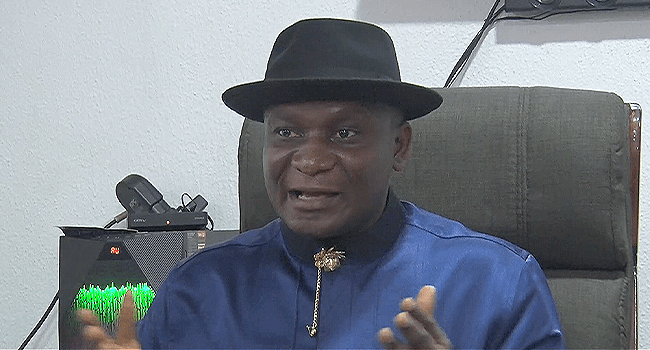


Stakeholders Summit to foster new strategies for growth of N’delta – NDDC Boss
The Managing Director of the Niger Delta Development Commission (NDDC), Dr Samuel Ogbuku, has assured that the Niger Delta Stakeholders Summit, coming up on July 10-13, 2024, will develop strategies for economic growth and development of the Niger Delta Region.
Ogbuku, who gave the assurance during an interview with journalists at NDDC headquarters in Port Harcourt, said that the summit would serve as a platform to articulate a roadmap for sustainable development of the Niger Delta Region.
The NDDC Chief Executive Officer remarked that stakeholders’ engagement was one of the cardinal points in the Renewed Hope Agenda of President Bola Ahmed Tinubu’s administration, stating: “The importance of stakeholders engagement is to ensure that projects and activities of government are well understood by the people.”
He emphasised the need to give the people opportunities for conversations to discuss development plans to ensure that they keyed into the renewed hope for sustainable development and support the programmes and activities of the government.
Ogbuku said further, “The plans for renewed hope have to be tailor-made. Hence, the people must participate in the process. Moreover, the democracy we are practising today is a participatory democracy where you must bring the leadership and followers together for proper understanding of policies and programmes.
“Renewed hope means touching lives. This government is out to touch lives. Bringing the people under one roof in the Niger Delta is to let them know what the renewed hope for sustainable development is all about and how beneficial it is for the region.”
Ogbuku noted that President Tinubu had charged the NDDC to complete and commission signature projects that would impact the lives of Niger Deltans. Following this directive, he said, the Commission recently inaugurated five flagship projects, covering roads, bridges and electricity, across the region.
He listed the projects as follows: “The 9km Obehie-Oke-Ikpe road in Ukwa West LGA, Abia State; the 25.7 kilometre Ogbia -Nembe Road in Bayelsa State; the 1×15MVA 33/11KV electricity injection substation in Amufi, Ikpoba-Okha Local Government Area in Benin City, Edo State; the 45km double-circuit 33KV feeder line from Omotosho Power Station to Okitipupa, Ondo State and the NDDC 6km Iko-Atabrikang-Akata-Opulom-Ikot Inwang-Okoroutip-Iwochang Road and 600m Ibeno Bridge in Ibeno LGA, Akwa Ibom State.”
Speaking on the 2024 budget of the commission, Ogbuku explained that the budget was done in collaboration with major stakeholders, insisting that when approved, it would help to complete many ongoing projects spread across different communities in the region.
The Managing Director, who stressed that the Federal Government was committed to tackling the under-development in Niger Delta region, expressed joy over the passage of the 2024 budget by the Senate, as it would facilitate the speedy completion of on-going projects across the Niger Delta region.
Commenting on the Public Private Partnership, PPP, initiative embraced by the Commission, Ogbuku attributed the completion of Ogbia-Nembe Road to the gains of partnership and stated that the NDDC was in talks with Chevron for partnership in the construction of the Warri-Omadino-Escravos Road to boost oil production and other economic activities in the area.



